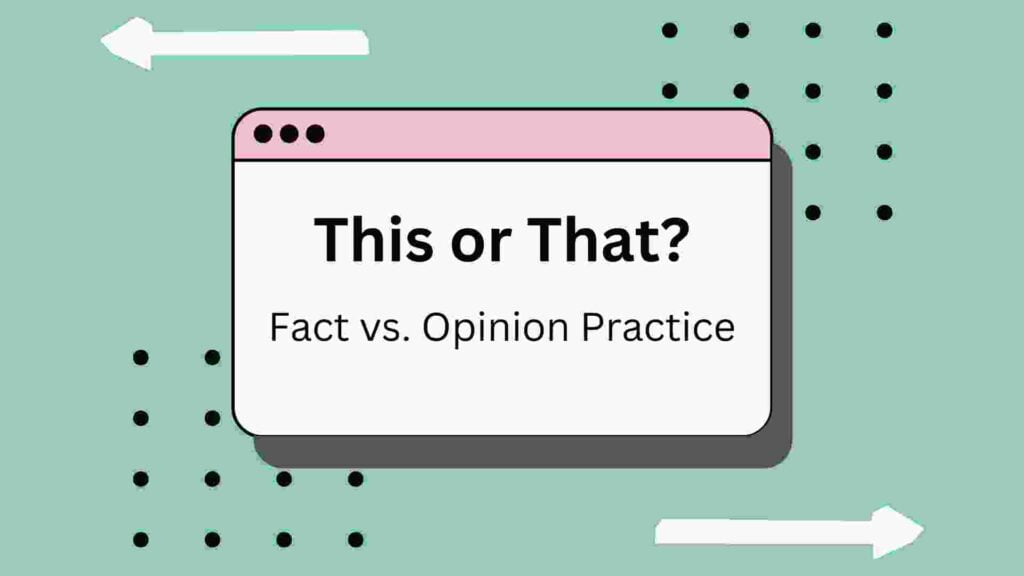Web Hosting Companies: Choose the Right Web Hosting Company. Hosting plan comparisons?
Hosting plan comparisons?
Choosing the Right Web Hosting Company: What You Need to Know
With thousands of web hosting companies available in the market, making the right choice can be daunting. Whether you’re launching a personal blog or establishing a robust online business, selecting the right web hosting company is crucial. The host you choose can make or break your website’s performance, security, and growth potential. This guide will help you navigate the crowded hosting market, understand pricing structures, and identify the key features that will ensure your online presence thrives.
This is the Table of Contents You Can Go to Any Part of the Post just by Clicking Here.
Understanding the Basics of Web Hosting
Web hosting is a service that allows organizations and individuals to post a website or web page onto the Internet. A web host, or hosting service provider, is a business that provides the technologies and services needed for the website or webpage to be viewed on the Internet.
Hosting services often include domain name registration, email accounts, FTP access, and more. Many also provide tools to build and maintain websites easily, even for non-tech-savvy users. But, not all hosting companies are created equal.

Why Web Hosting Matters
The quality of your web hosting provider impacts every aspect of your website’s performance:
- Website Speed: The faster your website loads, the better the user experience.
- Uptime: Uptime is the percentage of time that your website is operational. Many hosting companies promise 99.9% uptime, but only a few deliver on that promise consistently.
- Security: A good hosting provider will offer features such as SSL certificates, backups, and protection against malware.
- Scalability: As your website grows, you’ll need more resources. Your hosting provider should be able to accommodate your growth without downtime or lag.
- Customer Support: Quick, knowledgeable customer support is vital when something goes wrong.
Different Types of Web Hosting
Before diving into how to select a web host, it’s essential to understand the different types of hosting available. Not all hosting services are suitable for every website, so understanding your needs is crucial to choosing the right package.
1. Shared Hosting
Shared hosting is the most common and affordable hosting option. Your website shares a server with several other websites, which helps keep costs low. However, since resources are shared, your site’s performance can be affected by other websites on the server, especially if one of them experiences a traffic spike.
- Best For: Beginners, small blogs, and personal websites.
- Price: Typically between $2 – $10 per month.
2. Virtual Private Server (VPS) Hosting
VPS hosting is more advanced than shared hosting. Your website still shares a server with other websites, but each site has its own set of resources. This improves performance, security, and control compared to shared hosting.
- Best For: Small businesses, e-commerce websites, and growing sites with moderate traffic.
- Price: Typically between $20 – $50 per month.
3. Dedicated Hosting
With dedicated hosting, you get an entire server to yourself. This means you have complete control over the server’s resources and configurations. It’s ideal for high-traffic websites or sites requiring high levels of security and customization.
- Best For: Large businesses, high-traffic websites, and complex web applications.
- Price: Typically between $80 – $300 per month.
4. Cloud Hosting
Cloud hosting uses a network of servers to ensure website uptime and performance. It’s scalable, meaning you can increase or decrease your resources as needed, and it’s ideal for sites with fluctuating traffic levels.
- Best For: Businesses with fluctuating traffic, websites requiring high uptime and scalability.
- Price: Typically between $50 – $150 per month.
5. Managed Hosting
Managed hosting services take care of all the technical aspects of running a website, such as backups, security, and software updates. This is especially popular for WordPress hosting, where the hosting provider handles everything related to the WordPress platform.
- Best For: Users who prefer not to deal with technical details or businesses that require full-time management.
- Price: Typically between $30 – $200 per month.
Key Factors to Consider When Choosing a Web Hosting Company
Selecting a web hosting company involves more than just comparing prices. Here are the three most important factors you should prioritize when making your decision:
1. Excellent Customer Support
Imagine this: your website crashes, and it’s 2 a.m. on a Saturday. Who are you going to call? Hopefully, your web host has 24/7 customer support to address your issue. The best hosting companies offer:
- Live chat, phone, or email support round the clock.
- Access to knowledgeable, trained technicians (look for Level 3 support).
- Fast response times (ideally within minutes).
A simple test is to reach out to the hosting company at an odd hour, like midnight, to see how quickly they respond and resolve issues.
2. A Sound Infrastructure
Ensure that the hosting company has robust infrastructure in place to support your website’s needs:
- Data Centers: Look for a provider with multiple data centers, ensuring redundancy in case one goes down.
- Multi-Homed Network: This means that the web host is connected to multiple Internet backbone providers. It increases reliability and helps avoid downtime.
- Uptime Guarantee: Reputable hosts should offer a 99.9% uptime guarantee, but a few go as far as offering 100% guarantees backed by Service Level Agreements (SLAs).
3. Financial Stability
Choosing a hosting company that’s on shaky financial ground can spell disaster. If the company goes under, you could lose your website. Ensure that the provider you select has a proven track record of financial stability and will be around to support your business for years to come.
Advanced Features to Look For in a Hosting Company
Beyond the basic criteria, there are advanced features that some hosting companies offer that could greatly benefit your business:
1. Bandwidth and Storage
Bandwidth is the amount of data your website can transfer to visitors, while storage is the amount of space you have to store your website files. Make sure your hosting plan has enough bandwidth and storage to handle your current and future traffic needs. Many web hosting providers now offer unlimited bandwidth, but check the fine print to see if there are any limitations during traffic spikes.
2. Scalability
As your business grows, your website will need more resources. Look for a hosting provider that offers easy scalability options, allowing you to upgrade your plan without downtime. For instance, moving from shared hosting to VPS or dedicated hosting should be seamless.
3. Security Features
Security should be a top priority for any web host. Look for the following features:
- SSL Certificates: Essential for encrypting data and gaining user trust.
- Automatic Backups: Ensure your data is regularly backed up in case of a breach or error.
- Firewall Protection: Protect your site from cyberattacks with advanced firewalls.
- Malware Detection and Removal: Choose a provider that scans for malware and offers removal services if your site gets infected.
Common Mistakes to Avoid When Choosing a Web Hosting Company
- Opting for Free or Cheap Hosting Services: As tempting as free or extremely low-cost hosting may be, you’ll likely pay for it in the long run. Free hosting often comes with limited bandwidth, low storage, poor customer support, and frequent downtime. Your website deserves better.
- Not Understanding Your Needs: Make sure you understand your website’s requirements—traffic levels, bandwidth, e-commerce functionality—before committing to a host. If you outgrow your hosting provider too quickly, switching providers can be a headache.
- Ignoring Reviews and Reputation: Before settling on a host, take time to read reviews and consider the host’s reputation in the market. Companies with a long-standing track record of providing quality service are likely safer bets than newcomers with flashy deals.
Conclusion: Your Hosting Provider is a Long-Term Partner
Choosing the right hosting provider is one of the most critical decisions you will make for your website. A good hosting company acts as a partner, providing you with the tools, infrastructure, and support you need to grow your online presence.
When selecting a provider, prioritize factors like customer support, infrastructure, security, and scalability over just the price. A stable, well-supported hosting provider can help your business thrive, while a poor choice can lead to downtime, poor performance, and even financial losses.
Invest wisely in your web hosting and enjoy a smoother, more successful online experience.
Hosting plan comparisons?

When comparing hosting plans, it’s important to evaluate the features, pricing, and services offered by various providers to ensure you’re selecting the best option for your website. Here’s a detailed breakdown of the types of hosting plans available, along with common features and comparisons of popular hosting providers.
1. Shared Hosting Plans
Overview
Shared hosting is the most affordable and commonly used hosting plan. Your website shares server resources (CPU, RAM, bandwidth) with other websites, making it a cost-effective option, especially for beginners.
Features
- Pricing: $2 – $10/month
- Performance: Moderate, may slow down during high traffic due to shared resources
- Storage: Typically 10GB to unlimited storage
- Bandwidth: Often marketed as “unlimited,” but subject to fair usage policies
- Support: Basic, sometimes limited to live chat or ticketing systems
- Best For: Personal blogs, small businesses, and low-traffic websites
Comparison of Providers
| Provider | Price (Starting) | Bandwidth | Storage | Free SSL | Support |
|---|---|---|---|---|---|
| Bluehost | $2.95/month | Unlimited | 50GB | Yes | 24/7 Phone/Chat |
| HostGator | $2.75/month | Unlimited | Unlimited | Yes | 24/7 Phone/Chat |
| SiteGround | $3.99/month | 10,000 Visits | 10GB | Yes | 24/7 Support |
| DreamHost | $2.59/month | Unlimited | Unlimited | Yes | 24/7 Support |
2. VPS Hosting Plans
Overview
Virtual Private Server (VPS) hosting offers more control and dedicated resources than shared hosting. You still share a physical server, but you have your own allocated resources, which improves performance and stability.
Features
- Pricing: $20 – $100/month
- Performance: High, as you get dedicated CPU, RAM, and storage
- Storage: 20GB to 100GB SSD (Solid State Drive) storage
- Bandwidth: Often metered, with higher limits compared to shared hosting
- Support: Advanced, often with priority support options
- Best For: Growing websites, e-commerce, and moderate to high-traffic websites
Comparison of Providers
| Provider | Price (Starting) | RAM | Storage | Bandwidth | Support |
|---|---|---|---|---|---|
| Bluehost | $18.99/month | 2GB | 30GB SSD | 1TB | 24/7 Phone/Chat |
| InMotion | $19.99/month | 4GB | 75GB SSD | 4TB | 24/7 Phone/Chat |
| Hostinger | $9.95/month | 1GB | 20GB SSD | 1TB | 24/7 Support |
| A2 Hosting | $39.99/month | 4GB | 75GB SSD | 4TB | 24/7 Support |
3. Dedicated Hosting Plans
Overview
Dedicated hosting provides you with a dedicated server, meaning you are not sharing resources with anyone. This is the most powerful (and expensive) option, offering full control over server settings and the best possible performance.
Features
- Pricing: $80 – $500/month
- Performance: Superior, with no resource sharing
- Storage: 500GB to 2TB, often HDD or SSD
- Bandwidth: Unlimited or up to 15TB
- Support: Premium, with dedicated account managers or engineers
- Best For: Large businesses, high-traffic websites, and applications requiring maximum performance
Comparison of Providers
| Provider | Price (Starting) | CPU | Storage | Bandwidth | Support |
|---|---|---|---|---|---|
| Bluehost | $79.99/month | 4 cores, 8GB | 500GB SSD | 5TB | 24/7 Phone/Chat |
| Liquid Web | $169/month | 4 cores, 16GB | 2 x 240GB SSD | 5TB | 24/7 Phone/Chat |
| A2 Hosting | $141.09/month | 8 cores, 16GB | 2 x 1TB SSD | 10TB | 24/7 Phone/Chat |
| InMotion | $139.99/month | 4 cores, 16GB | 1TB SSD | 6TB | 24/7 Dedicated Support |
4. Cloud Hosting Plans
Overview
Cloud hosting uses a network of servers to ensure high availability, scalability, and performance. It’s highly flexible and great for websites that experience fluctuating traffic.
Features
- Pricing: $50 – $200/month
- Performance: Very high, with resources dynamically allocated
- Storage: Typically SSD, scalable from 20GB to unlimited
- Bandwidth: Often unmetered, or scalable
- Support: Advanced, with priority support options
- Best For: Websites with fluctuating traffic, enterprise applications, and businesses needing high uptime
Comparison of Providers
| Provider | Price (Starting) | RAM | Storage | Bandwidth | Support |
|---|---|---|---|---|---|
| Cloudways | $10/month | 1GB | 25GB SSD | 1TB | 24/7 Support |
| AWS EC2 | Pay-as-you-go | Variable | Scalable | Scalable | 24/7 Support |
| Google Cloud | Pay-as-you-go | Variable | Scalable | Scalable | 24/7 Premium |
| HostGator | $4.95/month | 2GB | Unlimited | Unlimited | 24/7 Phone/Chat |
Summary: Which Hosting Plan is Right for You?
Shared Hosting
- Who it’s best for: Beginners, small blogs, and personal websites
- Pros: Affordable, easy to manage
- Cons: Limited resources, slower performance under heavy traffic
VPS Hosting
- Who it’s best for: Growing businesses, websites with moderate traffic
- Pros: More control, better performance
- Cons: Higher cost than shared hosting, requires more technical knowledge
Dedicated Hosting
- Who it’s best for: Large businesses, high-traffic websites, and those requiring complete control
- Pros: Maximum control, no shared resources
- Cons: Expensive, requires technical expertise
Cloud Hosting
- Who it’s best for: Websites with fluctuating traffic or need high scalability
- Pros: Scalable, high uptime, flexible
- Cons: Can be more expensive, complex pricing models
Choosing the right hosting plan depends on your website’s size, traffic, and specific needs. Each type offers distinct advantages and caters to different users. If you’re just starting out, shared hosting is often sufficient, while larger businesses may require the power and flexibility of cloud or dedicated hosting. Always ensure you select a provider that offers good customer support, scalability options, and security features.
FAQs for “Web Hosting Companies”
1. What are the most important factors to consider when choosing a web hosting company?
The three key factors are excellent customer support, a sound infrastructure with uptime guarantees, and financial stability to ensure the company will be around in the future.
2. How much should I expect to pay for web hosting?
Typically, web hosting costs range from $10 to $50 per month, with annual costs between $300 and $500 depending on the features and services offered.
3. Why should I avoid free or cheap web hosting services?
Free or very cheap web hosting services often come with server downtimes, limited storage, and reduced bandwidth, which can negatively impact the performance of your website.
4. What should I look for in terms of bandwidth and storage when choosing a web host?
Ensure that the hosting plan offers enough bandwidth to handle increased traffic and sufficient storage for your website’s data. Many plans advertise “unlimited” options but always check the fine print for limitations.
5. Can I upgrade my hosting plan as my website grows?
Yes, many hosting providers offer scalable solutions. It’s important to choose a host that can accommodate your growth so you won’t have to switch providers later.
6. How can I ensure my hosting provider offers good customer support?
Test their customer support by reaching out at different times of day, especially during off-hours. Look for 24/7 support with live access to technicians, especially for high-traffic or business-critical websites.
7. What is the importance of a multi-homed network in web hosting?
A multi-homed network uses multiple bandwidth providers to ensure redundancy, meaning your website is less likely to experience downtime if one provider goes down.
8. How can I ensure that my hosting provider is financially stable?
Research the company’s history, read reviews, and check their financial reports (if available). Hosting with an unstable company could lead to sudden disruptions or the company shutting down.
Follow Us On Social: Facebook
Tips to Increase Website Ranking and Traffic



